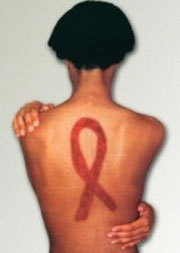
 Alert: Scientists have discovered a new strain of HIV; patients develop full blown AIDS much faster
Alert: Scientists have discovered a new strain of HIV; patients develop full blown AIDS much faster
By Krystle Crossman
HIV/AIDS research has uncovered an aggressive new strain of HIV in the West African country of Guinea-Bissau. The new strain has shown that it causes a person to contract AIDS almost two years faster than someone in the US who has HIV. This new strain of HIV is called A3/02. It was discovered in 2011 and has been the focus of a lot of research over the last few years.
So far the new strain has only been found in Guinea-Bissau. It forms when two strands of HIV that are most common in that country are fused together. The patients that are infected with the strain usually develop AIDS within five years of getting the virus. In the regular strains it can take much longer than that. One of the scariest aspects of this strain is that it can mutate while it is infecting the person who is the host. There are two different types of HIV (HIV-1 & HIV-2) with HIV-1 being the more common of the two. However these two types can have a bunch of subgroups as well.
Despite the fact that patients have been developing AIDS much quicker, doctors say that the current medication/treatment protocols are still working for this new strain, just as well as they work for the first strain.
One of the biggest indicators that you may have HIV/AIDS is your white cell levels. If they drop down to around 200 you could be experiencing an immune system crisis. There are 35.5 million people worldwide that have the HIV virus. Experts say that while this new strain has only been found in the one country so far there are most likely more strains developing in the US and Europe.


Be the first to comment